TikTok Awaits Its Fate
What to know about the popular social media app’s potential U.S. ban.
A view of the pin worn by TikTok educational influencer Tiffany Cianci as she livestreams outside the U.S. Supreme Court Building while the court hears oral arguments on whether to overturn or delay a law that could lead to a ban of TikTok in the United States, seen in Washington, D.C., on Jan. 10. Kayla Bartkowski/Getty Images
In the United States, presidents come and go, but—at least so far—TikTok has endured.
The social media app, owned by Chinese tech giant ByteDance, has been under attack for the past five years by U.S. politicians who see it as a potent threat to the country’s national security.
In the United States, presidents come and go, but—at least so far—TikTok has endured.
The social media app, owned by Chinese tech giant ByteDance, has been under attack for the past five years by U.S. politicians who see it as a potent threat to the country’s national security.
Those politicians may finally be about to get their big win. The U.S. Supreme Court is expected to uphold a law signed by President Joe Biden last April that mandated that ByteDance sell TikTok within 270 days or face a ban in the United States. According to that timeline, TikTok’s clock runs out on Sunday, Jan. 19—the day before President-elect Donald Trump takes office for the second time.
Trump, who promised on the campaign trail that he would “save” TikTok, may be the best bet for the platform and its roughly 170 million American users. In late December, he filed a brief urging the Supreme Court to delay a ban until he takes office so he can “pursue a political resolution.”
It remains to be seen whether the court will heed that plea—or TikTok’s argument that a ban would infringe on Americans’ free speech rights under the First Amendment—and there are still many open questions about the popular platform’s fate.
How did we get here?
Though he has now emerged as TikTok’s most likely savior, Trump was the one who first sought to ban the app during his first term over national security concerns regarding the Chinese Communist Party’s access to data about the app’s American users. That ban, imposed via executive order, was overturned by Biden in 2021 after multiple courts blocked Trump’s order.
Efforts to reach a compromise on TikTok’s ability to continue operating in the United States started and sputtered several times during Biden’s term. Those efforts included a multiyear review by the Treasury Department’s Committee on Foreign Investment in the United States and a TikTok-led initiative known as Project Texas, which would wall off the app’s U.S. user data in a system run by American tech giant Oracle, which U.S. officials deemed insufficient to assuage their concerns.
Those concerns continued to snowball even as TikTok added tens of millions of users in the United States—including accounts for both leading presidential campaigns during the 2024 election season. But sustained pressure in Congress from China hawks on both sides of the aisle finally resulted in an overwhelming vote in favor of the new divest-or-ban measure, which was folded into a broader national security supplemental bill that Biden signed into law in April.
The congressional coalescence around a TikTok ban forced Biden’s hand after months of negotiations, said Anupam Chander, a professor of law and technology at Georgetown University. The Biden administration “sat on their hands, despite this supposedly very urgent national security threat to the country, as more and more people joined TikTok,” Chander said. “They always had that authority; they just weren’t willing to exercise it,” he added.
Now, TikTok finds itself turning back to Trump for a rescue. The platform’s CEO, Shou Zi Chew, was among the many technology executives who visited the incoming president at Trump’s country club, Mar-a-Lago, last month following the election, and Chew is reportedly planning to attend the inauguration on Monday.
“The best-case scenario is for the Supreme Court to declare the law unconstitutional as applied to TikTok,” said Chander, “but they [TikTok] would be happy if they get a delay … which would allow President Trump to weigh in with potentially a different national security assessment.”
What happens next?
Barring a decisive intervention from the Supreme Court either way, TikTok will be illegal in the United States starting Sunday. The law states that no U.S. entity can “distribute, maintain, or update” the app, which means that app stores that make TikTok available for download—such as those run by Apple and Google—or internet providers that enable access to it would be in violation.
Those who already have TikTok on their phones could theoretically continue to access it, but the company reportedly plans to take its platform completely offline on Sunday once the ban goes into effect. According to a report by the Information citing sources familiar with the matter, Americans who try to access TikTok will instead be redirected to a website with information about the ban. A TikTok spokesperson did not respond to multiple requests for comment from Foreign Policy.
As the law states, however, those eventualities could either be precluded (in the next three days) or reversed (anytime after Jan. 19) in the event that ByteDance agrees to sell TikTok.
Who might buy it?
As with most other aspects of the TikTok ban, we’ve been here before. In his first term, Trump tried to broker a deal to divest TikTok of its Chinese ownership, and a group jointly led by tech firm Oracle and retailer Walmart even agreed to purchase the platform. But that deal was shelved after Biden took office in 2021.
Steven Mnuchin, who served as the U.S. treasury secretary during Trump’s first administration, expressed interest last year in putting together an investor group to buy TikTok.
Multiple reports this week suggest that officials in China—which has consistently said it would “firmly oppose” a sale of TikTok—may be coming around to billionaire Elon Musk as a potential buyer. Musk, the world’s wealthiest man, has developed close ties to both China and Trump.
The most comprehensive and concrete bid, however, has come from billionaire Frank McCourt. McCourt, the former owner of the Los Angeles Dodgers baseball team, established an initiative in 2021 called Project Liberty, which aims to create a decentralized version of the internet where users have control over their individual data.
“We think that that’s the next era of the internet, and that’s going to happen with or without a purchase of TikTok,” McCourt said in an interview with Foreign Policy this week. “We just think that buying U.S. TikTok would accelerate things and compress time, so to speak, so that this alternative upgraded internet would have scale—and therefore relevance—sooner,” he added.
Project Liberty has put together a consortium of investors that is calling itself the People’s Bid for TikTok. The consortium made a formal proposal to ByteDance last week, which McCourt said the Chinese firm has acknowledged receiving but hasn’t otherwise responded to. McCourt declined to comment on how much the consortium has offered, but he has previously said that he has secured commitments of about $20 billion to purchase the platform.
Perhaps most importantly, the consortium is willing to purchase TikTok without the algorithm that powers its video recommendation engine—an algorithm that China has placed restrictions on the sale of.
“As a business person, I always look for solutions where everybody is winning a little something,” McCourt said. “In this case, what we’ve come forward with seems to me to address all the stakeholders and is something in it for them: With President-elect Trump, it’s avoiding a ban; with [Chinese] President Xi [Jinping], it’s addressing his concerns about the algorithm and Chinese intellectual property; with the investors, it’s being able to get a return on investment as opposed to having it wiped out if the app is just shut down; for American citizens, it’s protecting them from no longer being surveilled by a foreign adversary; and for TikTok users, the app stays lit up.”
How will China react?
Beyond its vocal opposition to a forced sale of TikTok and its restrictions on the sale of the app’s algorithms, the Chinese government has largely distanced itself from the debate around the app—at least publicly.
But to some experts, the U.S. crusade against TikTok has played right into Beijing’s hands, geopolitically speaking.
“My heterodox view is that China would be happy to see TikTok banned in the United States. It doesn’t care about TikTok’s future in the United States,” said Chander, the Georgetown University professor. He added, “Instead, it cares that this is yet another demonstration that U.S. professions of embracing free expression, liberalism, and speech across frontiers are really self-interested and not ultimately reliable.”
The underlying problem may lie more on the U.S. domestic front, according to Kenton Thibaut, a senior resident China fellow at the Atlantic Council’s Digital Forensic Research Lab. In the absence of meaningful privacy regulations, Chinese spies have many more avenues to gain access to data about American citizens, such as buying it from data brokers.
Privacy regulations “are the things that will actually solve the problem that this TikTok issue is trying to solve, and at the same time will avoid the kind of hit to reputation that America is taking on the global stage by pursuing this ban when it claims to champion an open and free and interoperable internet,” Thibaut said. “Framing the risk of Americans’ data security as a problem that can be solved by banning TikTok leaves a wider and arguably more consequential swath of American data unprotected and available for purchase.”
Washington’s commitment to free speech faces a more immediate test no matter what happens to TikTok—as a ban looms, the most downloaded app among leading app stores in the United States this week was another Chinese social media app called Xiaohongshu, which means “Little Red Book” but uses “RedNote” as its English name.
The app, which has an interface similar to TikTok’s, has been flooded with thousands of new American users calling themselves “TikTok refugees” and has become a rare space for American and Chinese netizens to interact. While that camaraderie is unlikely to last long, given China’s strict controls over its own internet apps, RedNote’s surge in popularity lays bare the potential downside of Washington’s elevation of TikTok as public enemy No. 1 and the precedent a TikTok ban might set for online speech and U.S.-China tech competition. (This week’s second-most downloaded app was Lemon8, another video platform owned by TikTok’s parent company, ByteDance).
“I’m watching this Xiaohongshu thing, and it just really epitomizes the futility of this whack-a-mole approach” by Washington toward Chinese tech, Thibaut said. “It’s been like the delight of Chinese state media right now—it’s been such a propaganda boon for them to talk about on their platforms.”
At the same time, Thibaut argues that China may have also backed itself into a corner with its rhetoric around TikTok, regardless of any back-channeling or dealmaking that Trump or Musk might be amenable to.
“They’ve kind of tied their hands a bit—the Chinese public would excoriate them if they ended up selling TikTok, one of the biggest examples of Chinese companies being world leaders in tech,” she said. “Would they sell TikTok as a way to avoid tariffs? That would be seen as a huge capitulation by their own setup … that would be a hard sell to the Chinese public.”
Rishi Iyengar is a reporter at Foreign Policy. X: @Iyengarish
More from Foreign Policy
-

An illustration shows three tiers of classes, working class on the lowest with a bike messenger, a construction worker, a hotel worker, and a waiter; the second tier shows the professional-managerial class with a doctor, a graduate, and a man with a briefcase; the top layer shows two men golfing. Between them is a Donald Trump in a champagne coupe. America Is Locked in a New Class War
Money and education no longer explain voting patterns.
-

An illustration shows Joe Biden at a lecturn on a bridge spanning a chasm with two heads of Donald Trump in profile forming the base of the bridge. Why Biden’s Foreign Policy Fell Short
The White House never met its own grandiose standards.
-

An illustration shows Donald Trump smiling zanily with yellow hair flying one direction and a red tie snaking through his ears and around his head wildly. Does the Madman Theory Actually Work?
Trump likes to think his unpredictability is an asset.
-

An illustrations shows the silhouette of Donald Trump with a face filled with pricetags. Trump Is Ushering In a More Transactional World
Countries and companies with clout might thrive. The rest, not so much.
This post was originally published on here


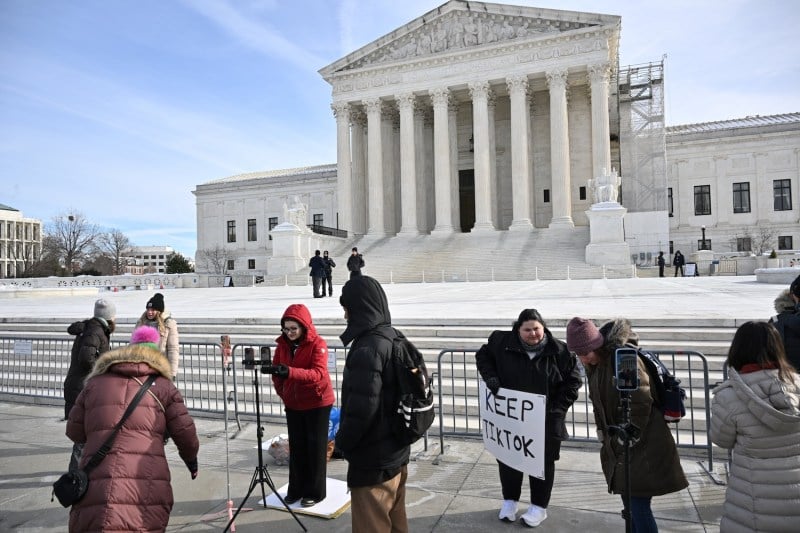
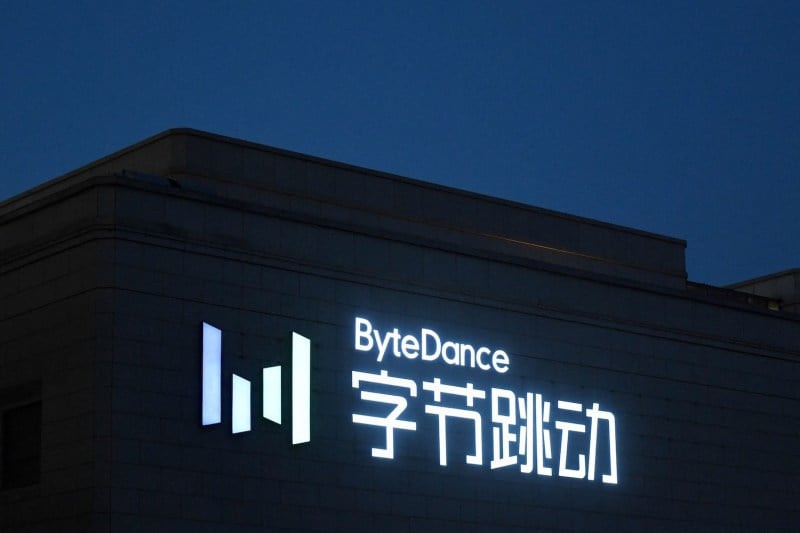

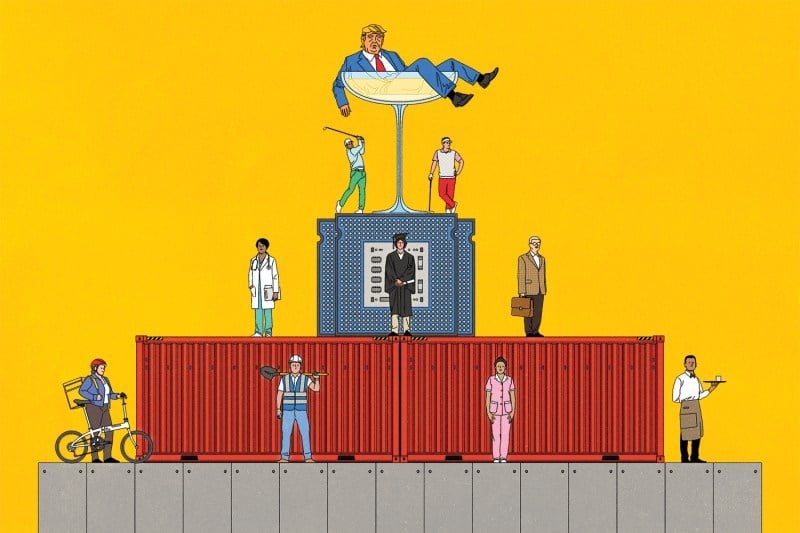
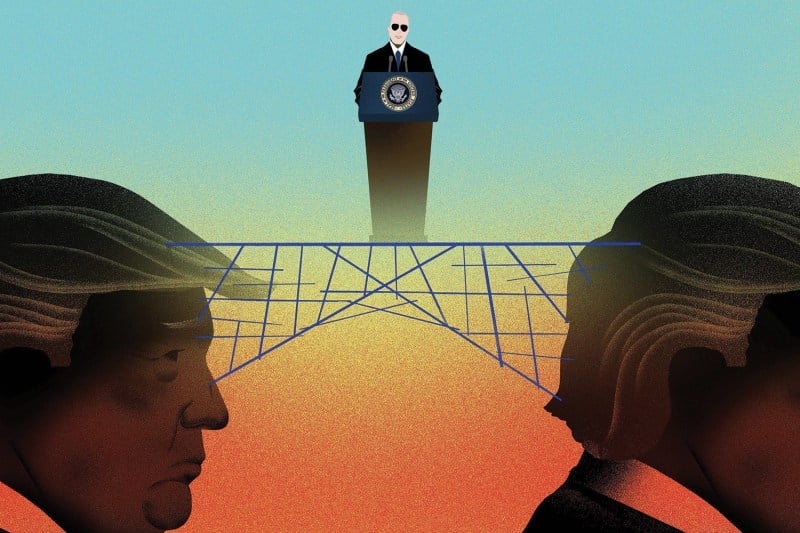
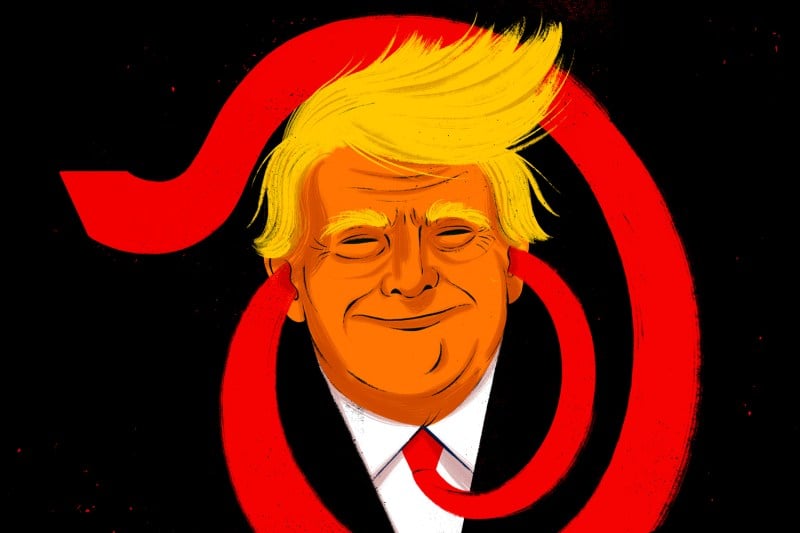







Join the Conversation
Commenting on this and other recent articles is just one benefit of a Foreign Policy subscription.
Already a subscriber?
.
Subscribe
Subscribe
View Comments
Join the Conversation
Join the conversation on this and other recent Foreign Policy articles when you subscribe now.
Subscribe
Subscribe
Not your account?
View Comments
Join the Conversation
Please follow our comment guidelines, stay on topic, and be civil, courteous, and respectful of others’ beliefs.
Change your username |
Log out